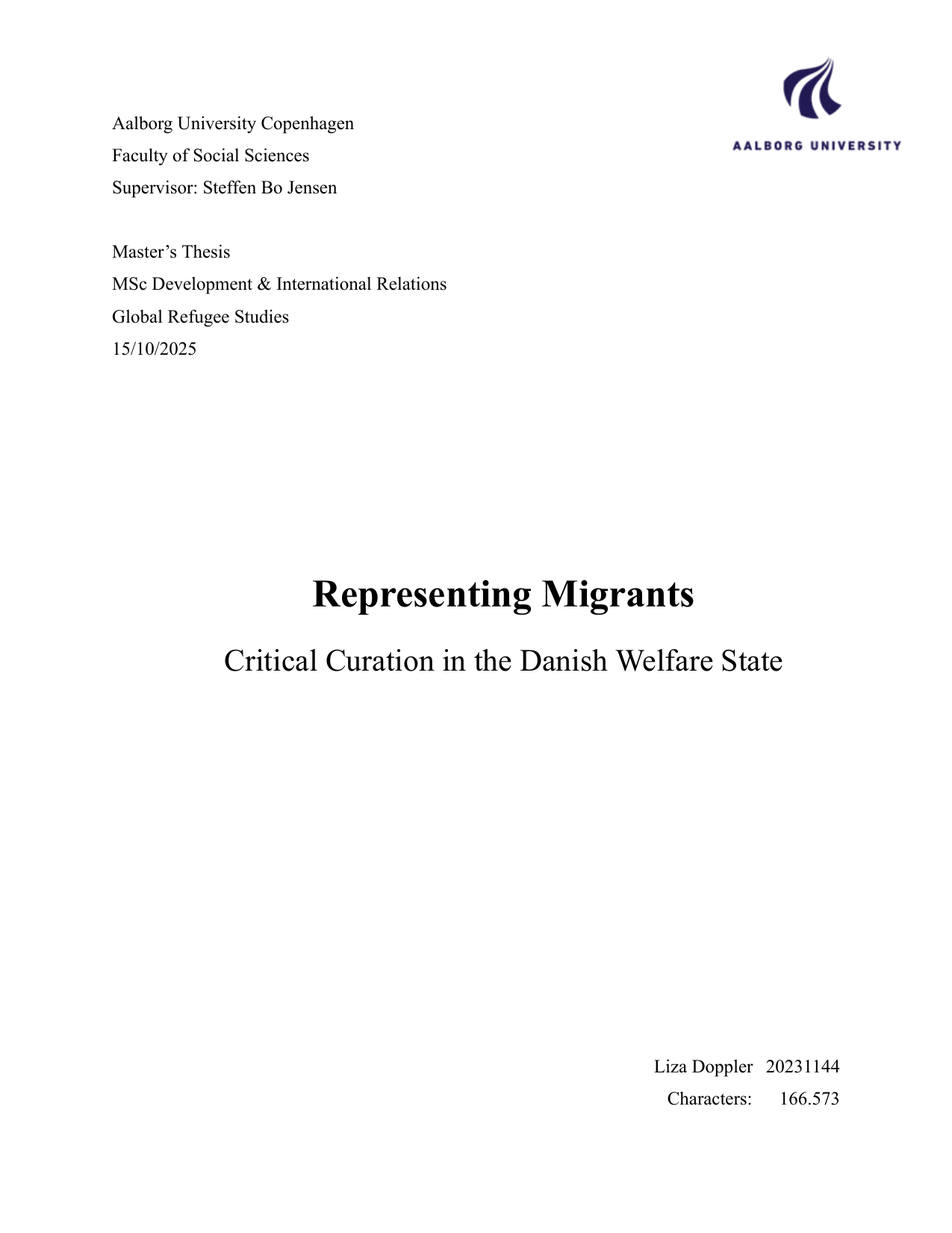
Representing Migrants: Critical Curation in the Danish Welfare State
Author
Term
4. semester
Education
Publication year
2025
Submitted on
2025-10-14
Pages
75
Abstract
This thesis is an investigation into how curators navigate the changing politics of the Danish art scene to represent migrants in contemporary art exhibitions. As its point of departure, this research looks at the contested relationship between Denmark’s dominant narratives of cultural homogeneity and welfare state egalitarianism, and the implications of these for an ever-growing presence of racialized non-Western migrants. From this point, it examines how critical curatorial practices are used to mediate cultural representations of this racially othered group in a context of colonial amnesia and growing political conservatism toward immigration from non-Western countries. Drawing on theories of social structures and their transformation, representation, and race by Pierre Bourdieu, Michel de Certeau & Steven Rendall, Stuart Hall, and Ann Laura Stoler respectively, the thesis conceptualizes curators as political actors in a socially constructed cultural field. In this field, relatively weaker curators interact with other actors, institutions, and structures—each guided by their individual backgrounds and institutional legacies—in their attempts to represent the empirical categories of “migrants” and “race” whose interpreted meanings inform societal understandings of these represented subjects. Employing a narrative and situational analysis, the research traces the shifting politics of the Danish art scene and curator practices over the course of three cultural movements in recent Danish cultural history: the postwar institutionalization of the Danish art scene by the welfare state, the rise of Danish Cultural Radicalism at the turn of the century, and the reconstitution of the welfare state inscribed political order from 2022 to the present. Through examination of these extended-cases, the thesis reveals how independent curators—despite their weaker positions—strategically navigate a politics of representation constituted by shifting state political and financial regulation, increasingly powerful private foundations and their logics, and dominant ideological constraints to challenge accepted understandings of Danishness and racial belonging. Relying on their social networks, growing importance and influence in the art scene, and critical contemporary approaches that use multiple mediums like events to get their message across despite regulation, curators are able to achieve their desired project outcomes. Yet, these efforts often reproduce contradictions: while aiming to subvert hegemonic migrant stereotypes, curators’ projects sometimes reinforce them when informed and shaped by the same welfare state egalitarianism that masks the structural exclusion of racially othered non-Western migrants. The findings highlight the curator’s dual role as both mediator and political actor within a highly institutionalized cultural field, illustrating how art exhibitions can both contest and reproduce the racialized boundaries of Danish national identity. Ultimately, the thesis contributes to broader debates on cultural representation, the negotiation of racial diversity in contemporary Denmark, and the important role of the critical theoretically informed independent curator in societal knowledge construction by way of art and its exhibition.
Keywords
Documents
